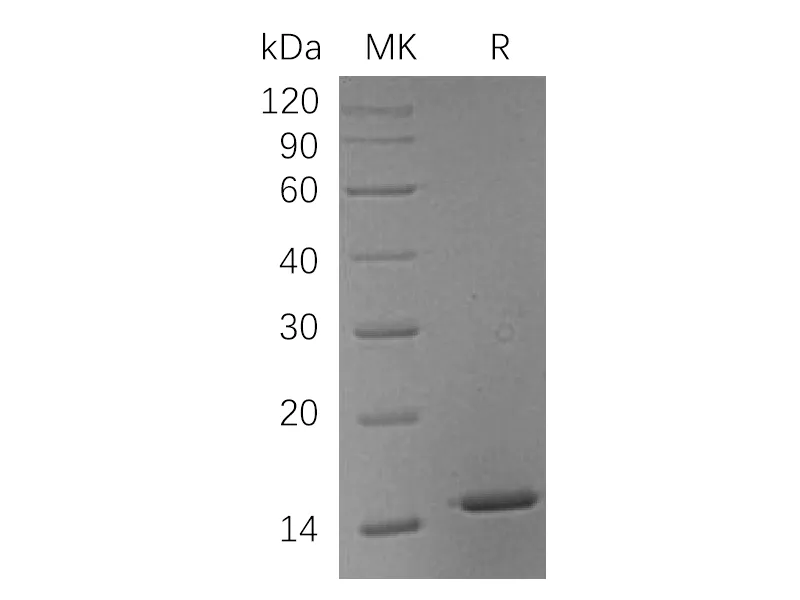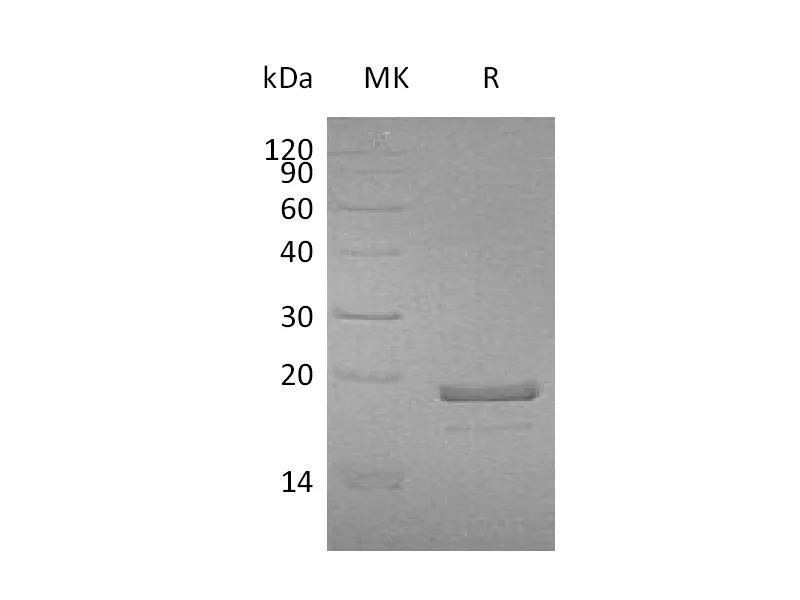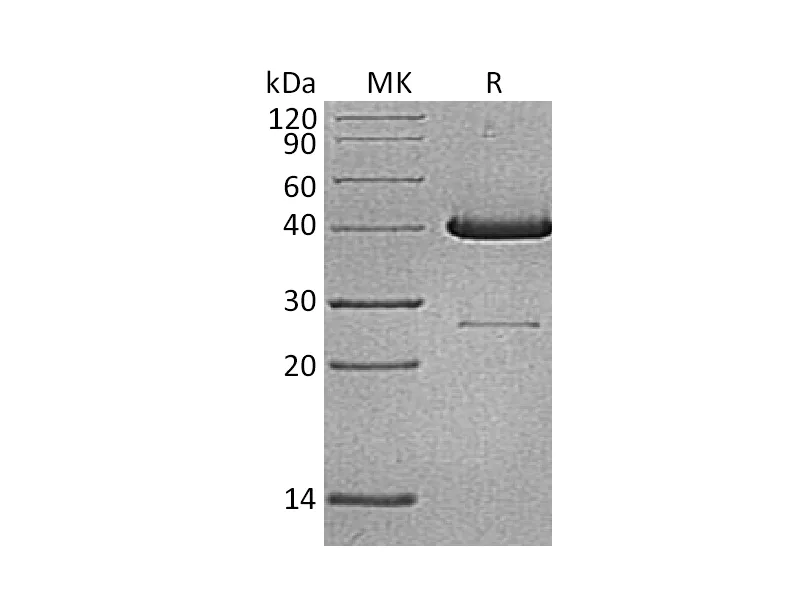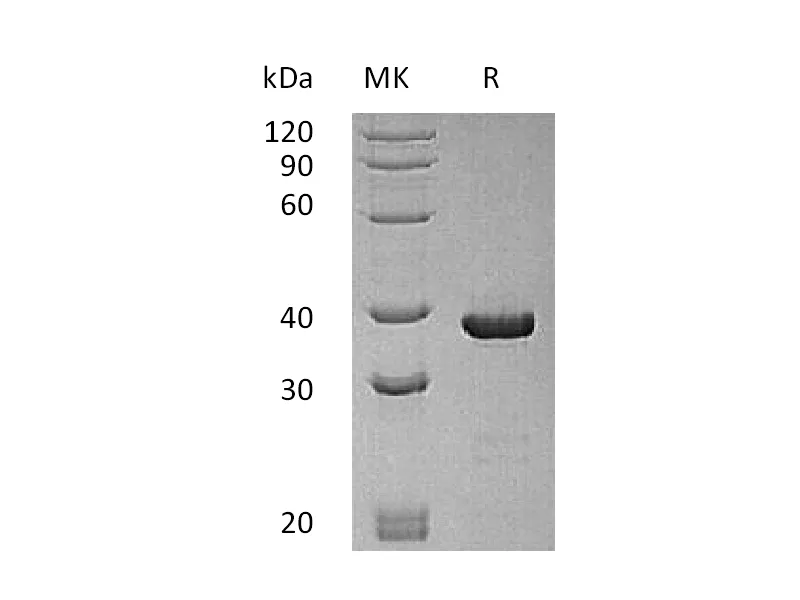| 产品名称 |
Recombinant Mouse CD157 (C-6His) |
| 英文名称 |
CD157/BST1/ADP-ribosyl cyclase 2/Cyclic ADP-ribose hydrolase 2 |
| 纯度 |
Greater than 95% as determined by reducing SDS-PAGE |
| 内毒素 |
<1 EU/µg as determined by LAL test. |
| 蛋白构建 |
Recombinant Mouse ADP-ribosyl Cyclase/cyclic ADP-ribose Hydrolase 2 is produced by our Mammalian expression system and the target gene encoding Ala25-Glu285 is expressed with a 6His tag at the C-terminus. |
| Accession |
Q64277 |
| 表达宿主 |
Human Cells |
| 种属 |
Mouse |
| 预测分子量 |
30.3 KDa |
| 制剂 |
Lyophilized from a 0.2 μm filtered solution of PBS, pH 7.4. |
| 运输方式 |
The product is shipped at ambient temperature.Upon receipt, store it immediately at the temperature listed below. |
| 稳定性&储存 |
Lyophilized protein should be stored at ≤ -20°C, stable for one year after receipt.Reconstituted protein solution can be stored at 2-8°C for 2-7 days.Aliquots of reconstituted samples are stable at ≤ -20°C for 3 months. |
| 复溶 |
Always centrifuge tubes before opening.Do not mix by vortex or pipetting.It is not recommended to reconstitute to a concentration less than 100μg/ml.Dissolve the lyophilized protein in distilled water.Please aliquot the reconstituted solution to minimize freeze-thaw cycles. |
| 分子别名 |
| ADP-ribosyl cyclase/cyclic ADP-ribose hydrolase 2; ADP-ribosyl cyclase 2; Antigen BP3; BP-3 alloantigen; Bone marrow stromal antigen 1; BST-1; Cyclic ADP-ribose hydrolase 2; cADPr hydrolase 2; Leukocyte antigen 65; Ly-65; CD157; Bst1; Bp-3; Bp3; Ly65 |
| 背景介绍 |
| CD157 is a glycosyl phosphatidylinositol anchored membrane protein that belongs to the CD38 family. CD157 was discovered in a bone marrow stromal cell line where it facilitates preBcell growth. Along with CD38, CD157 is a bifunctional ectoenzyme that exhibits both ADP-ribosyl cyclase and cyclic ADP ribose hydrolase activities. It may play a role in rheumatoid arthritis (RA) due to its enhanced expression in RA-derived bone marrow stromal cell lines. CD157 has been predicted to function as a cell surface receptor and an immunoregulatory molecule. CD157 was originally identified as a bone marrow stromal cell molecule (BST-1) with a glycosylphosphatidylinositol (GPI) anchor to bind to the cell surface. CD157 is prevalently expressed by cells of the myeloid lineage. CD157 could act as a receptor with signal transduction capability. Further, it regulates calcium homeostasis and promotes polarization in neutrophils and mediates superoxide (O2−) production in the human U937 myeloid line. |
注意事项
本司产品仅用于科研,不用于临床诊断和治疗




